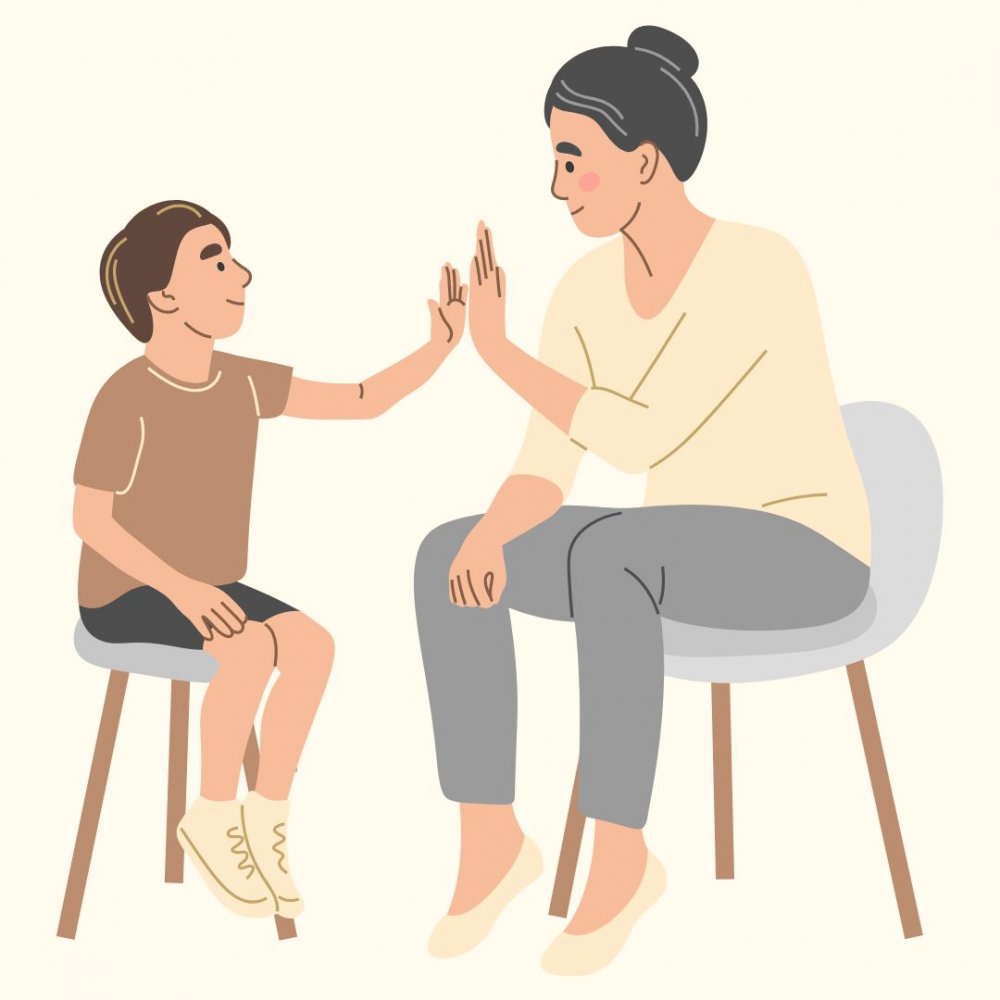HayU Blog
How to Explain Neuropsych Testing Results to Kids
January 30th, 2024
You just spent thousands of dollars to have your child tested to demystify their learning profile, and you receive a lengthy report full of jargon and percentiles. You get one feedback session with the psychologist, but how do you explain the results to your child? Psychologists typically offer a 1:1 feedback session with the child, as well, but parents may opt out of that due to various factors, such as apprehension, the belief that the child is too young for active involvement, or fear that the child may feel embarrassed or stigmatized after learning about their diagnosis. On the contrary, many kids experience a sense of relief when they learn that their challenges have a name. Kids can sense when something is wrong, and as Dan Siegel says of emotions, “Name it to tame it.”
 I recently spoke with Dr. Liz Angoff, a licensed educational psychologist who is committed to sharing the testing results with children as young as four years old in a way that they can understand.
I recently spoke with Dr. Liz Angoff, a licensed educational psychologist who is committed to sharing the testing results with children as young as four years old in a way that they can understand.
“All children deserve a feedback session because all children deserve closure. Listen and ask how they understand their experience. That informs what to share. Understand their questions, how they describe problems that are coming up, and talk to the child in that same way. Share that their brain is awesome and literally under construction,” she said.
She developed The Brain Building Books to engage children in understanding their learning and developmental differences. In this text, she describes a child’s strengths and stretches using the highway metaphor. Things that come easy are highways and difficulties are construction zones. “Neurodiversity means that all brains are different in important ways. For you, neurodiversity means that you have these strengths and these construction projects,” Liz explained.
Here’s an example of what she shares with children:
Some psychologists use the Brain Building Books during the assessment process, and then children can continue to work through the colorful guide with their parents, educational therapists or tutors. At Hayutin, we love the process of activating a growth mindset and utilizing tools like this to empower kids and adolescents. It’s all about paving the road to self-advocacy by using a strengths based, neurodiverse affirming approach.
But what if I’m not ready to share my child’s diagnosis?
Sometimes parents need some time and space to process a diagnosis and don’t want to share it with their child just yet, and that’s okay. Psychologists and practitioners work to demystify ADHD, autism, dyslexia, etc. when the family is ready. Dr. Angoff reminds parents, “You are not alone. There is a huge community of amazing individuals that have walked this path before.”
A diagnosis doesn’t have to spell doom and gloom; it’s a compass and a way forward. And when you’re ready, there are people like us who can help.
Important takeaways
If you feel overwhelmed after your feedback session, reach out to the evaluator with questions. I asked Dr. Angoff about the four key takeaways from the report for an overwhelmed parent:
- What are my child’s strengths?
- What are my child’s challenges?
- What is this called? What is the diagnosis or eligibility category?
- What should I do next?
Tips for prioritizing recommendations
Many psychologists do a great job prioritizing recommendations, but it’s such a loaded topic that sometimes we need time to digest and revisit it all. No matter how beautifully the report is written, sometimes families are left with questions.
And when you’re not quite sure where to start, Dr. Angoff suggests asking the evaluator for the top five recommendations:
- Something for the parent
- Something for the child academically
- Something for the child emotionally
- Something for the family
- Learning about the diagnosis from neurodiversity affirming sources
Finally, hold fast to what you already know inside as the loving parent you are: a report is just a doorway into new possibilities and avenues for growth. By embracing the process of self-discovery and keeping an open mind, you can support them with what they need to remember most on their journey–you love them fiercely for who they are, always and no matter what.
~Courtney Wittner, M.Ed., ET/P
Senior Director at Hayutin




